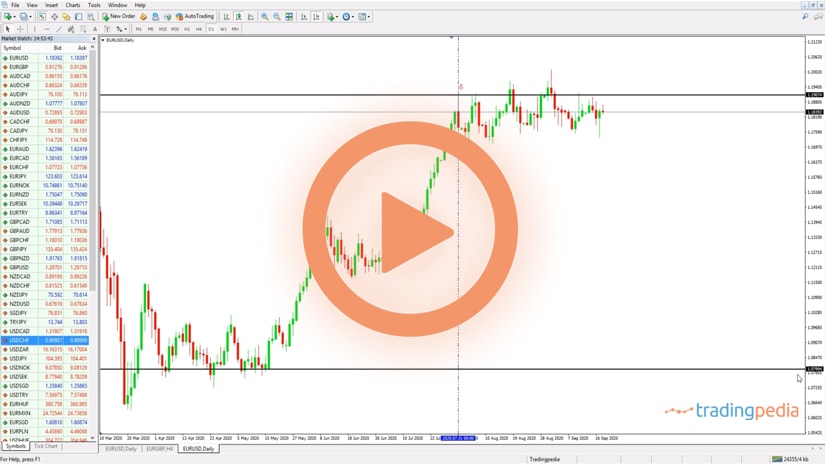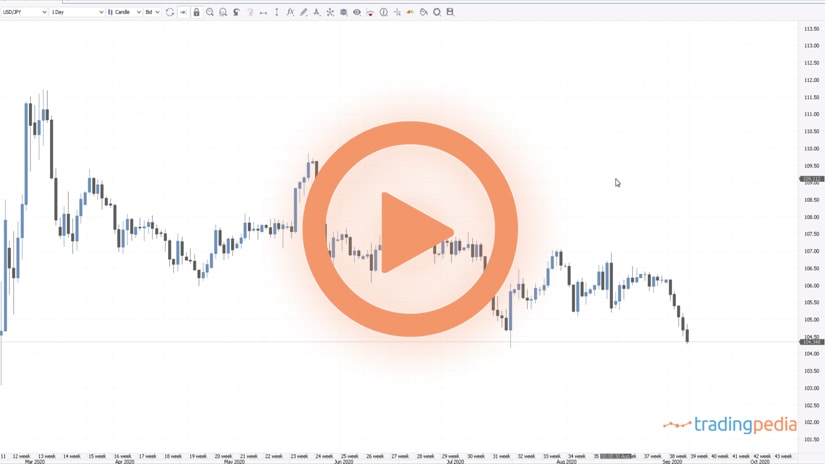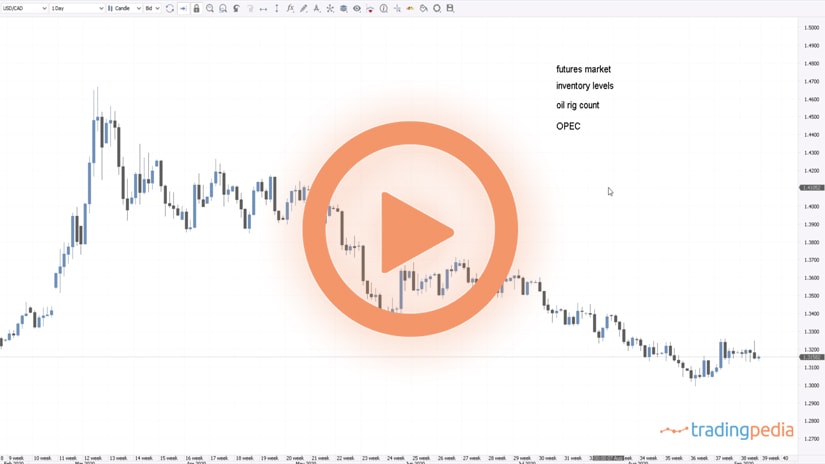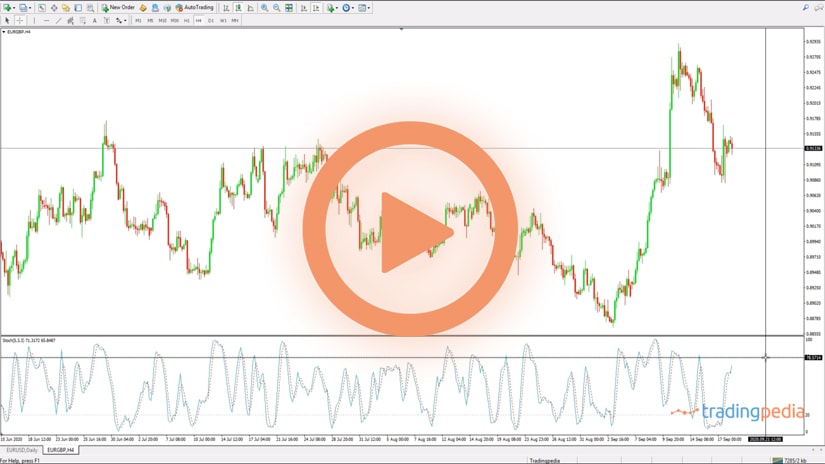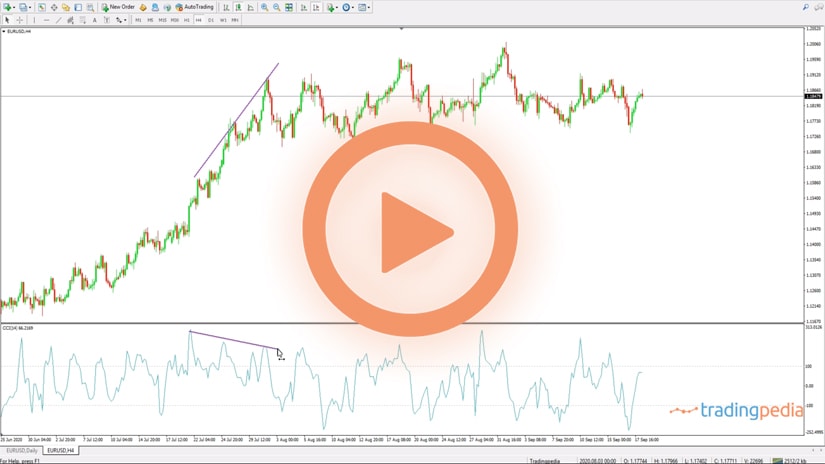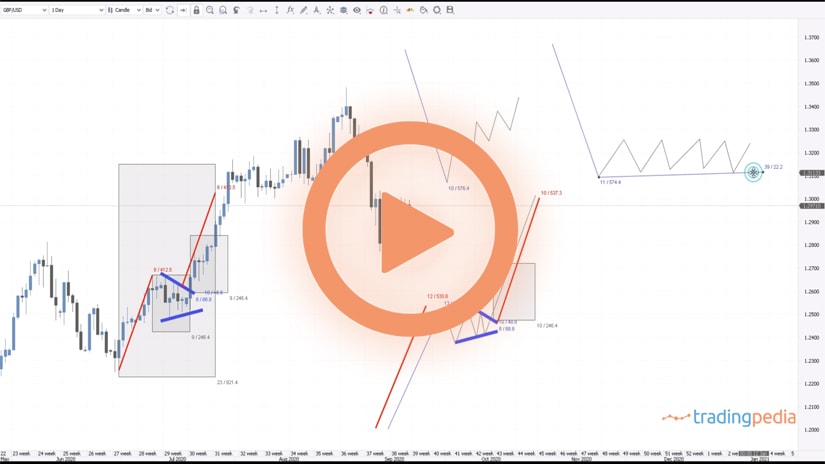
Hello there, this is tradingpedia.com and this video deals with a money management concept, so we will write on the screen more than doing classic technical analysis. It deals with the difference between gross and net earnings, and the name of this video, bottom line, comes from accounting. When you interpret a financial statement, the net income is also called the bottom line.
Overview
This is a very important concept because in trading, what is important is not the actual profit of a trade, but the bottom line or the amount you end up earning after a trade. For instance, this is the GBPUSD on the daily chart. Let’s assume that we went short, assuming that this pattern is a shooting star. We go short with a stop at the high and we actually made on the trade $100. It represents the gross income for a trade.
You may have a market that moves ten pips in your favor with ten dollars risk/pip or a hundred pips in your favor with one dollar risk/pip, or some other combination. The first thing to consider is the commission paid. This is subtracted from the trading account the moment the trade is open.
The Spread
Also, consider the spread – the difference between bid and ask prices. The wider the spread, the bigger the cost or the fee that you will end up paying to the broker.
Therefore, when you plan a trade and you calculate that the profit from the trade is $100, make sure to discount the commission and the spread. They may not account for much, but they matter when you add them up for a longer period of time, like for a year or so.
Fees
Withdrawal fees or deposit fees – some are hidden, some are mentioned, but sometimes even the credit card company may charge you something extra. This is something that we already discussed, but what is important is how you present your income or profit from trading to regulators.
Regulations
When trading for a living, it is important to understand the responsibilities behind making a profit. Regulations differ from country to country. In most developed countries, if you realize capital gains you must pay some extra. In some countries there is a preferential discount for capital gains, and so on.
In most countries, what you earn in one year must be declared to authorities and then the next year you pay taxes based on your profits in the previous year. This is more or less standard in the European Union.
In the United Kingdom, what you can do is to spread bet. Spread betting is not subject to taxes if you do not trade for a living. If you have a regular job and also make a profit from financial market, then instead of trading with a regular Forex broker you may want to choose to trade with a spread betting broker.
There is no difference between the two except for the fact that when you trade with a broker you trade the actual volume and when you spread bet you bet an amount on a trade. Instead of selling one lot on the GBPUSD example, for which you will have a $10 per pip, if you spread bet you cannot sell one lot, but you can bet $10/pip. This is the only difference to consider.
Therefore, if you live in the United Kingdom, then there is no need to pay any taxes on capital gains providing you are not doing this for a living. If you are doing this for a living, you need to be some kind of entity to justify your income.
In the European Union, paying taxes on the profits made from the currency market can vary from 40% to 50%. Regulation changes often, but what is important is what you are left with after everything. If you are organized as an entity, you will need to pay some VAT, depending on the organization, and so on.
Related Videos
Conclusion
The bottom line or the cost of trading goes beyond simply buying or selling a currency pair and beyond simply making a profit. Imagine the sum of all trades in a year. If the result is positive, then you need to pay tax on it before using that money. By not declaring it, you are postponing debt you have towards authorities.
Bye, bye.
